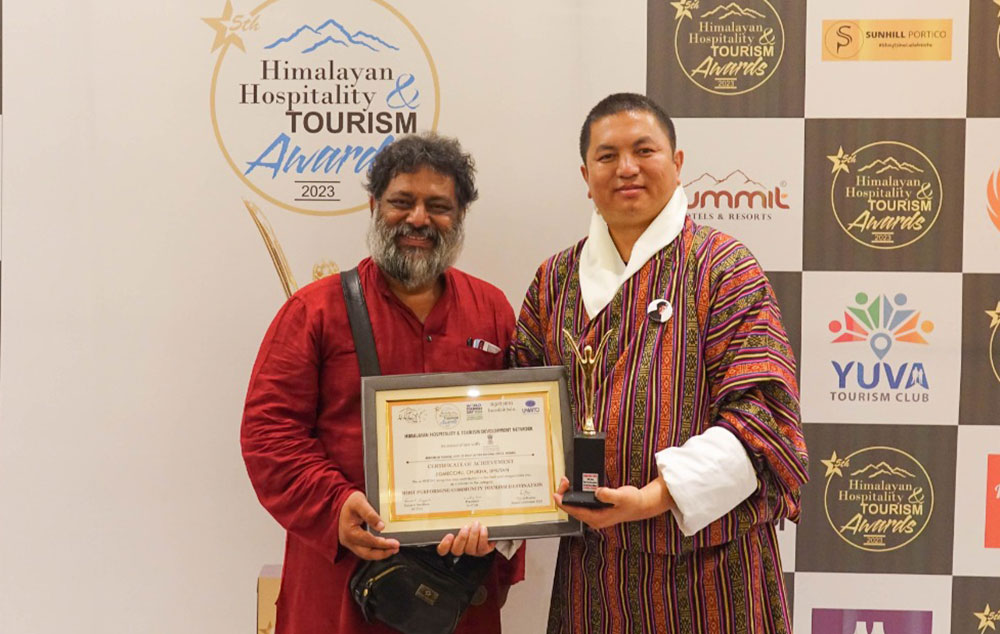… the site is given the most performing community destination award
YK Poudel
A popular eco-tourism site in Chhukha, Jigmechhu Eco-tourism site was awarded the “Most Performing Community Tourism Destination” at the fifth Himalayan Hospitality and Tourism Awards at Siliguri, West Bengal on September 27 to mark World Tourism Day.
Chhukha Economic Development and Marketing Officer, Sangay Thinley said that the award recognises the efforts of the tourism department and the dzongkhag administration to develop community-based tourism products and services to boost local economic prosperity. “Thousands of visitors were recorded to the site for its scenic beauty and biodiversity, especially in the winter.”
“The campsites, homestays and ‘tree house’ lodges are managed by two groups of community members. With additional inputs, it has potential of becoming international tourism hub,” he said.
The Tourism Flagship Programme identified Jigmechu as an eco-tourism destination with about Nu 1.5 billion investment to promote tourism for balanced regional development.
A 2020 assessment report identified Jigmechu as one of the most attractive natural sites with rich biodiversity coverage and huge potential to bring about economic development in the dzongkhag.
The site hosts over 300 bird species, including the endangered White-Bellied Heron, peacock, barking deer, rufous-necked hornbill, wreathed hornbill, and different types of butterfly species among others—due to the presence of peacocks, the place is also known as Majathang.
There are varied experiences—homestay experiences, birdwatching, tongba drinks, fly-fishing, and an hour’s hike to Ami Nye, the pilgrimage site of the local deity Aum Yangtham.
Cycling track and rafting services along Wangchhu are yet to be developed. Jigmechhu town with a few shops has also revived with the eco-tourism site.
The unfavourable climatic conditions, rugged terrain and limited water supply, agricultural productivity is very low and people lack knowledge of agriculture—the wildlife depredation on crops and the accessible market is a major challenge.
The campsite has a huge potential if further developed. With an increasing number of visitors, waste is a mounting challenge for camp operators. Wastes are either recycled or burned. The campsite is already facing a water shortage.
The campsite remains closed during monsoon (May-September) due to erratic weather conditions.
Royal Society for Protection of Nature, Association of Bhutanese Tour Operators, Nature Conservation Division, Bhutan Foundation and HELVETAS Swiss Intercooperation are involved in the progress and promotion of the site.


